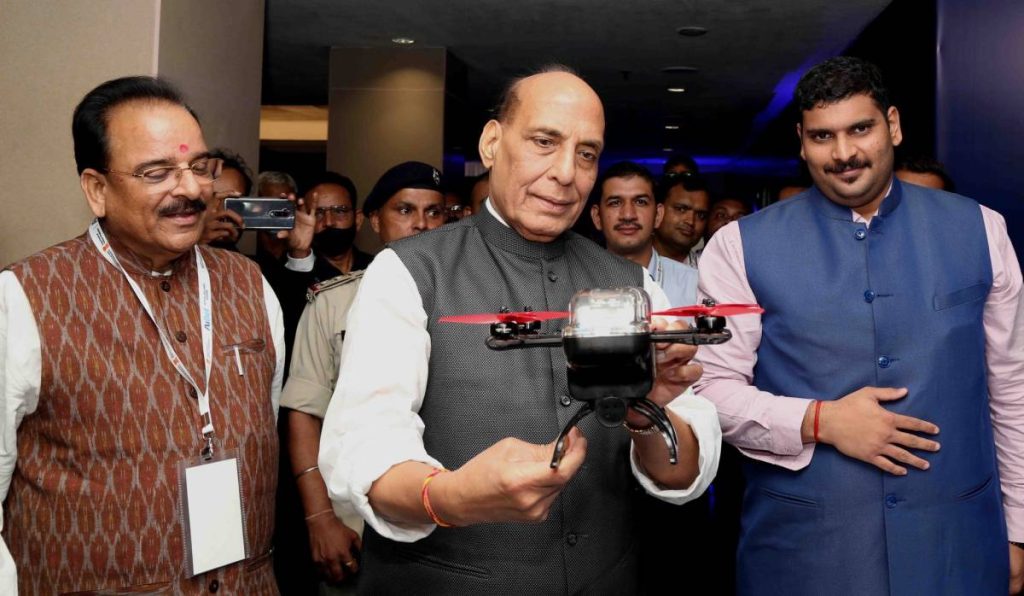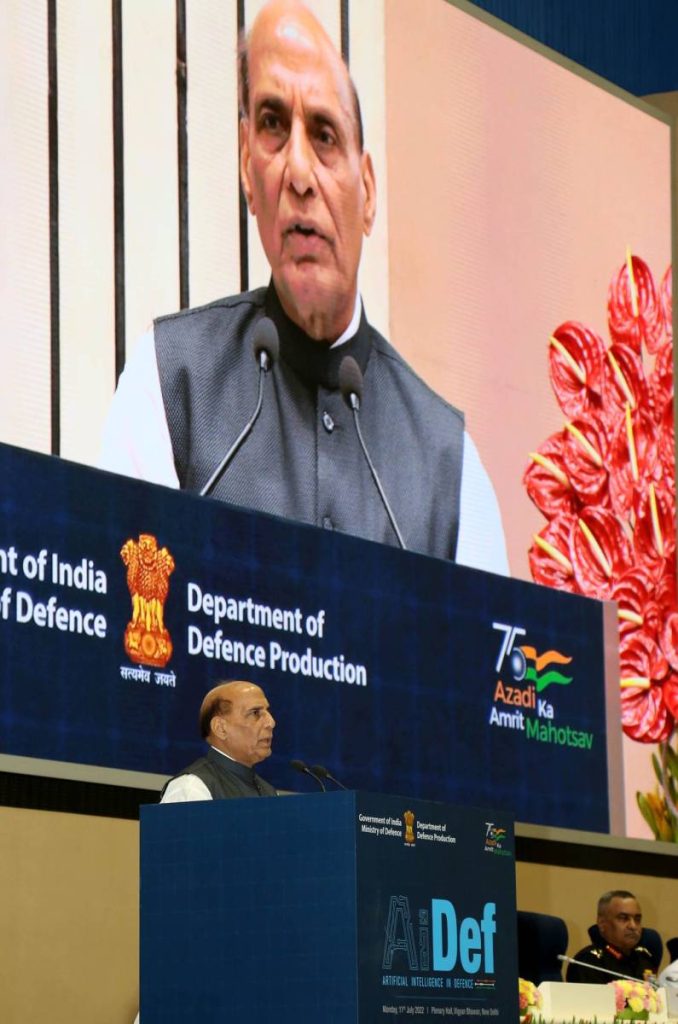The robot traverses on metal rails between two set points and utilises an electric motor for propulsion. The robot communicates by creating an ad-hoc network running on 2.4 Ghz Wi-Fi standards….reports Avinash Prabhakar
The Silent Sentry is one among the 75 Artificial Intelligence (AI) enabled defence products, which were launched by Defence Minister Rajnath Singh at the event ‘AIDef’ (Artificial Intelligence in Defence)’ on Monday.
Out of the total AI defence products launched, many have already been deployed while the others are in the process of being deployed.
The Silent Sentry is a key technology developed by the design bureau of the Indian Army to plug the gaps in surveillance networks. They are rail-mounted robots to be used as additional features to enhance surveillance along the Line of Control (LoC).
The fully 3D printed robot slides can be installed on the fences and in the Anti Infiltration Obstacle System (AIOS). The robots which function autonomously within set limits can be controlled by computers, tablets and Android apps.

The robot traverses on metal rails between two set points and utilises an electric motor for propulsion. The robot communicates by creating an ad-hoc network running on 2.4 Ghz Wi-Fi standards.
Two wireless routers are installed on the endpoints on the rail that provide wireless coverage to the robot. The routers are then connected by LAN cables or wirelessly with the computer where video processing is carried out.
A Standard COTS available wireless IR surveillance camera has been installed presently on the robot. The camera has 95-degree horizontal field of view and a detection range of 30m at night and is similar to those utilised for perimeter surveillance by the units. Any wireless camera system can be added to the robot.
Speaking on the use of AI-enabled technology in the defence sector, Major General (retd) Ashok Kumar said, “Surveillance remains a major challenge for the defence forces both on Pakistan and China borders, but it has a different dimension on the LoC with Pakistan as regular intrusion attempts are made, including covering fire by the Pakistan Army.”

“The development of Silent Sentry is going to be a major boon on the surveillance network, especially on the Pakistan border. This AI-powered equipment will not only detect the intrusion, but will also initiate fire when the intruder is in the effective range. It will not require human manning and will be a game changer,” he told IANS.
He said that AI is impacting almost all the sectors acroos the globe, including in India. The impact is making huge inroads in the problem solving domain of defence as well. Defence PSUs have made substantial progress wherein 40 AI products were developed by March 22, a substantial increase over the last two years, Kumar said.
The Silent Sentry system utilises two AI features for surveillance, i.e., human detection and face recognition for the purpose of surveillance.
The video feed received from the robot will be analysed by an AI software utilising object recognition. The software detects movement and human presence automatically and generates an audio alarm and stores the photographs with time and date log.
In face recognition, on detection of a human, a background facial recognition algorithm is activated, which tries to determine the identity of a person from a stored database. The facial features are then stored in the database.
The robot can traverse 300 metres multiple times on battery for four hours. A low battery current and voltage sensor sends the signal to the robot and generates an alert. On sensing the low voltage, the robot automatically moves to the charging station and docks with the charger till the batteries are fully charged.
Multiple modes of operation have been provided for control of the robot on the user interface. The users can select manual mode, automatic patrolling mode, switch off/on facial recognition, human detection and audio alarms as per customised requirements.

Leave a Reply